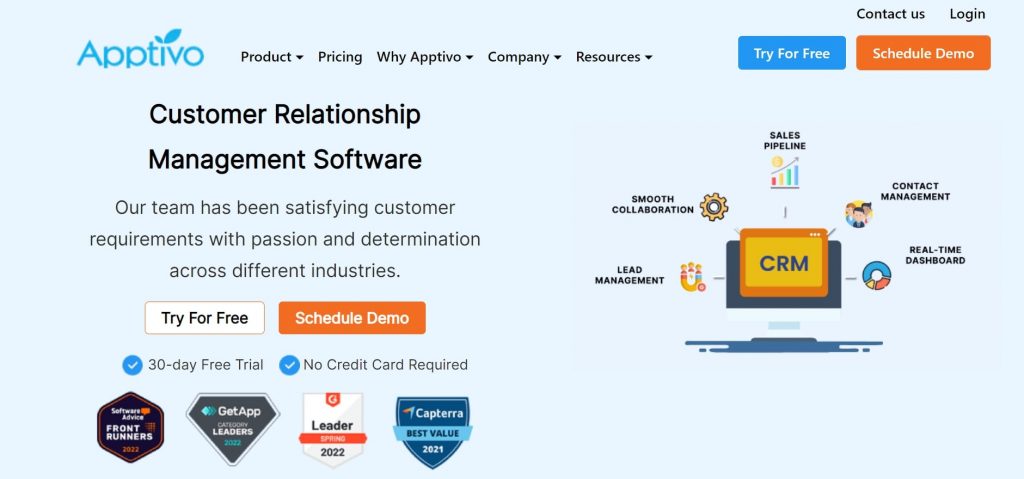In today’s competitive business landscape, managing customer relationships effectively is more crucial than ever. A customizable Customer Relationship Management (CRM) system offers the flexibility and scalability needed to address unique business challenges and capitalize on emerging opportunities.
By tailoring a CRM to your specific needs, you can streamline processes, enhance customer interactions, and drive sustainable growth. Whether you’re a small startup or a large enterprise, a customizable CRM can transform the way you connect with your customers, optimize your operations, and ultimately, scale your business to new heights.
Scale Your Business with a Customizable CRM
A customizable CRM (Customer Relationship Management) system is a powerful tool for businesses looking to grow and optimize their operations. By tailoring the CRM to fit specific business needs, companies can enhance customer interactions, streamline processes, and gain valuable insights.
A customizable CRM allows you to integrate various features and functionalities that align with your unique business model, ensuring that every aspect of your customer relationship management is efficient and effective.
Enhance Customer Interactions with Personalized Features
One of the key benefits of a customizable CRM is the ability to personalize features to meet the specific needs of your customers. This includes customizing email templates, automating follow-up communications, and creating tailored marketing campaigns.
By providing a more personalized experience, you can build stronger relationships with your customers, leading to increased satisfaction and loyalty. Additionally, personalized features can help you identify and address customer pain points more effectively, further enhancing the overall customer experience.
Streamline Business Processes with Custom Workflows
A customizable CRM allows you to streamline business processes by creating custom workflows that fit your unique operational needs.
This can include automating routine tasks, such as lead qualification and task assignment, which can significantly reduce the time and effort required to manage these tasks.
Custom workflows can also help you maintain consistency in your processes, ensuring that every interaction with a customer is handled in a standardized and efficient manner. This not only improves productivity but also helps in maintaining a high level of service quality.
Gain Valuable Insights with Advanced Analytics
One of the most powerful aspects of a customizable CRM is the ability to gain valuable insights through advanced analytics. Customizable CRM systems often come with robust reporting and analytics tools that allow you to track key performance indicators (KPIs) and gain a deeper understanding of your business operations. By analyzing data on customer behavior, sales trends, and marketing effectiveness, you can make data-driven decisions that help you optimize your strategies and drive growth. These insights can also help you identify areas for improvement, enabling you to continuously refine your approach.
| Benefit | Description |
|---|---|
| Enhanced Customer Experience | Customizable features improve customer satisfaction and loyalty. |
| Efficient Business Processes | Streamlined workflows reduce manual tasks and increase productivity. |
| Data-Driven Decisions | Advanced analytics provide insights for optimizing strategies. |
What is the most customizable CRM?

The most customizable CRM (Customer Relationship Management) system is generally considered to be Salesforce. Known for its extensive customization options and flexibility, Salesforce allows businesses to tailor the platform to meet their unique needs and workflows.
This high degree of customization is achieved through a combination of built-in features, such as process builders, workflows, and the ability to create custom objects and fields.
Additionally, Salesforce offers a robust AppExchange, where users can find and install a wide array of third-party apps and integrations to extend the functionality of the CRM.
Customization Features in Salesforce
Salesforce provides a wide range of customization features that make it highly adaptable to various business needs. These features include:
- Custom Objects and Fields: Users can create custom objects to store specific data and fields to capture detailed information relevant to their business processes.
- Process Builders and Workflows: These tools allow users to automate complex business processes, reducing manual tasks and increasing efficiency.
- APEX and Visualforce: For more advanced customization, developers can use APEX and Visualforce to create custom code, enhancing the CRM with tailored functionalities.
Integration Capabilities of Salesforce
One of the key factors that make Salesforce highly customizable is its robust integration capabilities. These capabilities enable seamless integration with a variety of third-party applications and systems, enhancing the overall functionality of the CRM. Key integration features include:
- AppExchange: A marketplace for Salesforce users to discover and install a wide range of pre-built apps and integrations, covering various business needs.
- Salesforce Connect: This feature allows users to connect external data sources and integrate them into their Salesforce environment, providing a unified view of customer data.
- APIs and Web Services: Salesforce provides comprehensive APIs and web services for developers to build custom integrations, ensuring that the CRM can work seamlessly with any system or application.
Community and Support for Customization
Salesforce’s strong community and support ecosystem significantly contribute to its customization capabilities. Users have access to a wealth of resources and assistance to help them customize and optimize their CRM. Key aspects of this ecosystem include:
- Trailhead: An online learning platform that offers free courses and tutorials to help users and developers learn how to customize and use Salesforce effectively.
- Partner Network: A network of certified partners who can provide professional services, including customization, implementation, and training, to help businesses get the most out of Salesforce.
- Community Forums: Active forums where users can ask questions, share best practices, and collaborate with other Salesforce users, providing a valuable source of support and information.
What is customized CRM?
A customized CRM (Customer Relationship Management) system is a tailored solution designed to meet the specific needs and workflows of a business. Unlike off-the-shelf CRM software, which comes with pre-set features and functionalities, a customized CRM is built or modified to align with the unique processes, requirements, and goals of an organization. This allows businesses to optimize their customer interactions, boost efficiency, and enhance overall performance by leveraging a system that fits seamlessly into their existing operational framework.
Benefits of Customized CRM
A customized CRM offers numerous advantages over standard solutions. One of the key benefits is improved efficiency, as the system is tailored to streamline specific business processes. For example, a sales team might benefit from a CRM that integrates directly with their customer service platform, allowing for better communication and data sharing. Additionally, a customized CRM can enhance user adoption rates because it is designed to be user-friendly and relevant to the day-to-day tasks of the organization’s employees. Lastly, it provides greater data accuracy and consistency, as the system is configured to capture and manage data in a way that aligns with the company’s specific requirements.
- Improved Efficiency: Streamlined workflows and integrated processes.
- Enhanced User Adoption: Tailored user experience that matches the organization’s needs.
- Greater Data Accuracy: Customized data entry and management practices.
Implementation Process of Customized CRM
The implementation of a customized CRM involves several key steps. First, a thorough needs assessment is conducted to understand the business requirements and identify areas where the CRM can add value. Next, the design phase involves creating a blueprint of the system, including the user interface, data architecture, and integration points. After the design is finalized, the development phase begins, where the CRM is built or modified according to the specifications. Once the system is developed, it undergoes rigorous testing to ensure it meets all the required standards and is free from bugs. Finally, the CRM is deployed, and training is provided to the users to ensure they can effectively utilize the new system.
- Needs Assessment: Identifying business requirements and value areas.
- Design: Creating a blueprint of the CRM system.
- Development: Building or modifying the CRM according to specifications.
Common Customization Options in CRM
There are various customization options available in a CRM to meet different business needs. Custom fields allow users to add specific data points that are relevant to their operations, such as unique customer attributes or additional contact information. Workflow automation can be set up to automate repetitive tasks, such as sending follow-up emails or updating customer records. Custom reports and dashboards provide tailored insights and metrics that are aligned with the organization’s KPIs and strategic goals. These customizations help to create a more dynamic and effective CRM system that supports the business’s specific objectives.
- Custom Fields: Adding specific data points relevant to the business.
- Workflow Automation: Automating repetitive tasks for efficiency.
- Custom Reports and Dashboards: Providing tailored insights and metrics.
What are the 4 types of CRM?

The four main types of Customer Relationship Management (CRM) systems are Operational CRM, Analytical CRM, Collaborative CRM, and Strategic CRM. Each type serves a specific purpose and contributes to the overall effectiveness of a company’s customer relationship management strategy.
Operational CRM
Operational CRM focuses on automating and streamlining the core business processes involved in customer interactions. This type of CRM is designed to improve efficiency and productivity by centralizing customer data and automating tasks such as sales, marketing, and customer service. By automating these processes, businesses can reduce the time and effort required to manage customer interactions, leading to improved customer satisfaction and increased sales.
- Automated Sales Processes: Streamlining the sales pipeline from lead generation to closing deals.
- Marketing Automation: Managing marketing campaigns and tracking their effectiveness.
- Customer Service Automation: Handling customer inquiries and support requests more efficiently.
Analytical CRM
Analytical CRM is centered around analyzing customer data to gain insights and make informed business decisions. This type of CRM uses advanced analytics and data mining techniques to understand customer behavior, preferences, and trends. By leveraging these insights, businesses can tailor their marketing strategies, improve product offerings, and enhance customer retention.
- Customer Segmentation: Dividing customers into groups based on shared characteristics.
- Predictive Analytics: Forecasting future customer behavior and trends.
- Performance Metrics: Measuring the effectiveness of marketing and sales strategies.
Collaborative CRM
Collaborative CRM, also known as Customer Collaboration CRM, focuses on improving communication and collaboration between internal teams and external partners. This type of CRM facilitates the sharing of customer information and insights across different departments and with external stakeholders. By fostering better collaboration, businesses can provide a more cohesive and personalized customer experience.
- Partnership Management: Coordinating with external partners and vendors.
- Customer Feedback Management: Collecting and acting on customer feedback.
- Internal Collaboration Tools: Enhancing communication and collaboration within the organization.
What is scalability in CRM?
Scalability in CRM (Customer Relationship Management) refers to the ability of a CRM system to handle growth and changes in the volume of data, users, and transactions without compromising performance or functionality.
A scalable CRM system can adapt to the evolving needs of a business, whether it’s expanding into new markets, increasing the customer base, or adding new features and functionalities. This adaptability ensures that the system remains efficient and effective as the organization scales, thereby supporting long-term growth and sustainability.
Importance of Scalability in CRM
Scalability is crucial for the long-term success of a CRM system. As a business grows, the amount of data and the number of users interacting with the CRM can increase significantly.
A scalable CRM system can handle these increases without slowing down or requiring a complete overhaul. This ensures that the system remains responsive, maintains high performance, and continues to provide valuable insights and support.
- Improved Efficiency: A scalable CRM system can process more data and user requests without performance degradation, leading to more efficient operations.
- Cost-Effectiveness: Scalable systems often offer better cost management as they minimize the need for frequent upgrades or replacements, which can be expensive and time-consuming.
- Future-Proofing: By being able to adapt to changing business needs, a scalable CRM system ensures that the investment in technology remains relevant and useful over time.
Types of CRM Scalability
There are several types of scalability that a CRM system can support, each addressing different aspects of growth and performance.
- Horizontal Scalability: This involves adding more resources, such as servers or nodes, to distribute the load and handle increased traffic. It is particularly useful for handling spikes in user activity or data volume.
- Vertical Scalability: This refers to increasing the capacity of existing resources, such as adding more RAM or CPU power to a single server. It is effective for improving performance and handling heavier workloads.
- Functional Scalability: This involves adding new features and functionalities to the CRM system as the business expands. It ensures that the system remains versatile and can support new business processes and strategies.
Challenges in Achieving CRM Scalability
While scalability is highly beneficial, achieving it comes with its own set of challenges. These challenges can impact the effectiveness and efficiency of a CRM system.
- Data Management: As the volume of data grows, managing and maintaining data quality becomes more complex. Ensuring that data is accurate, consistent, and accessible is crucial for the system’s performance.
- System Integration: Integrating the CRM system with other business applications and databases can become more challenging as the system scales. Ensuring seamless integration and data flow is essential for maintaining operational efficiency.
- Security: Scaling a CRM system can introduce new security risks, especially with increased data and user access. Implementing robust security measures and protocols is necessary to protect sensitive information and maintain compliance with regulatory standards.
Frequently Asked Questions
What is a Customizable CRM and How Can It Help Scale Your Business?
A Customizable CRM (Customer Relationship Management) system is a tool that can be tailored to fit your specific business needs. It helps manage customer interactions, track sales, and automate tasks. By customizing the CRM, you can optimize workflows, improve customer service, and gain valuable insights, all of which are crucial for scaling your business efficiently.
How Does a Customizable CRM Improve Customer Engagement?
A Customizable CRM allows you to tailor interactions based on customer data and behavior. This personalization leads to more relevant communication, better customer experiences, and increased loyalty. Features like automated email campaigns, tailored product recommendations, and real-time customer analytics help you engage customers more effectively, driving higher satisfaction and retention rates.
Can a Customizable CRM Integrate with Other Business Tools?
Yes, a Customizable CRM can integrate with a wide range of business tools such as marketing automation platforms, e-commerce systems, and customer service tools. These integrations allow for seamless data flow and improved operational efficiency. By centralizing your data, you can ensure that all departments have access to the most up-to-date information, enhancing collaboration and decision-making.
What Are the Cost Benefits of Using a Customizable CRM?
Using a Customizable CRM can lead to significant cost savings over time. By automating repetitive tasks, reducing data entry errors, and improving sales cycles, you can increase productivity and reduce operational costs. Additionally, the ability to scale the CRM as your business grows ensures that you only pay for what you need, making it a cost-effective solution for businesses of all sizes.


